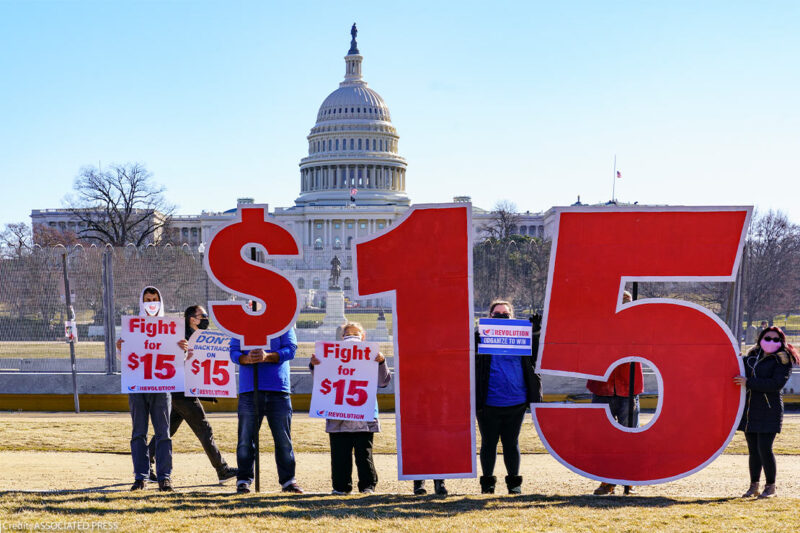The WomenÔÇÖs Movement Needs Lawyers and Organizers Working Together


Legal intervention as an avenue for social change has been central to social, economic, and political progress for women, but is difficult to access for the people who most need it. Until recently, the mainstream womenÔÇÖs rights movement in the United States was dominated by white and wealthy women ÔÇö such as Elizabeth Cady Stanton, Susan B. Anthony, and Betty Friedan ÔÇö fighting for the rights of others who look like them. As a result, the movement has too often excluded and erased the experiences of non-white and working-class women, limiting the movementÔÇÖs progress in advancing equality for Black women, Indigenous women, and other women of color in this country.
As the womenÔÇÖs movement shifts to an approach ÔÇö a term coined by Kimberl├® Crenshaw to describe that identities such as race and gender cannot be isolated in understanding the oppression of people who hold multiple marginalized identities ÔÇö elevating the voices and experiences of women who have been historically excluded is critical. Lawyers must ally with community organizers, who work on the ground with those most impacted, to make the womenÔÇÖs movement more accessible and inclusive ÔÇö an approach the └¤░─├┼┐¬¢▒¢ß╣¹ WomenÔÇÖs Rights Project strives to model.
Legal intervention as an avenue for social change has been central to social, economic, and political progress for women, but is difficult to access for the people who most need it.
Though I provide legal support to attorneys now, I co-founded in Ithaca, New York in 2019, and I know firsthand that there is heavy skepticism between lawyers and organizers. Lawyerswith the communities they are supposed to be helping, yet often deem themselves experts in tackling a problem over people who are closest to the issue. Organizers, on the other hand, sometimes utilize bold strategies that test the limits of the law, which some lawyers are uncomfortable with. Bridging this gap and finding more ways to work together will fill needs on both ends and lead to more progress.
In 2018, the └¤░─├┼┐¬¢▒¢ß╣¹ and several state affiliates, along with private counsel, partnered with (FF15) organizers to confront rampant sexual harassment at McDonaldÔÇÖs restaurants nationwide. Senior Staff Attorney Gillian Thomas and FF15 organizer Allynn Umel explained to me that people in politically and economically vulnerable positions (such as undocumented people, teenagers, and low-wage workers) frequently avoid complaining about workplace abuse, let alone taking legal action, out of fear of retaliation. Because lawyers can be removed from their clientsÔÇÖ everyday realities, collaborating with organizers helps the attorneys stay informed and build the trust that is essential for time-consuming and emotionally draining cases. Recognizing the risks and pressures of challenging their employer, FF15 organizers met with workers to speak about the importance of legal intervention and make sure they knew they were not alone.
Lawyers must ally with community organizers, who work on the ground with those most impacted, to make the womenÔÇÖs movement more accessible and inclusive ÔÇö an approach the └¤░─├┼┐¬¢▒¢ß╣¹ WomenÔÇÖs Rights Project strives to model.
ÔÇ£Particularly for the most marginalized and vulnerable, it is pretty critical to have organizers familiar with what workers are putting on the line every single day as part of a larger fight entails as the workers engage in the legal process, as an organizer's main job is to help push people past their fear and into a place of power,ÔÇØ explained Umel.
There is a marked difference between attorneys interested in supporting further organizing and attorneys looking to limit organizing to protect organizational or institutional concerns, Umel noted. The central question, she said, is ÔÇ£Are we on the same team? Do the attorneys here fully appreciate and value the role of organizing and overall campaign and making sure the workers and community members have some greater degree of ownership of what happened beyond just trying to enforce the law?ÔÇØ In speaking to her experience working with the └¤░─├┼┐¬¢▒¢ß╣¹, Umel emphasized that the respect for the organizers, coupled with an understanding of the support that survivors of harassment needed to come forward, was critical for the campaign and fight.
Bridging this gap and finding more ways to work together will fill needs on both ends and lead to more progress.
In 2020, during the height of the pandemic, the └¤░─├┼┐¬¢▒¢ß╣¹ WomenÔÇÖs Rights Project and └¤░─├┼┐¬¢▒¢ß╣¹ of Missouri worked with to file a federal lawsuit challenging the Jackson County Circuit Court for permitting eviction cases despite the nationwide eviction moratorium. On navigating the relationships and tensions between organizers and lawyers, Senior Staff Attorney Sandra Park explained that KC Tenants was the client, and ultimately, they determined if and how the litigation advanced their goals.
ÔÇ£In the early days of the pandemic, it was crucial for us to be in communication with folks on the ground, organizing, to determine what the greatest needs were and whether litigation could be used to help stop mass evictions,ÔÇØ said Park, reflecting that she does not see it as her role to determine organizersÔÇÖ goals and strategies.
These are examples of integrated advocacy at its most effective. In both instances, the lawyers and organizers were able to respect each otherÔÇÖs expertise and collaborate to advocate their causes. These frameworks provide a roadmap that must be replicated in order for the womenÔÇÖs movement to be as inclusive and impactful as possible.

